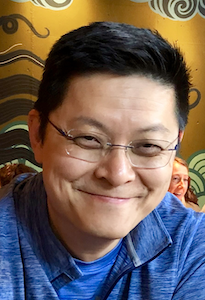| 演讲者 | Prof. Ben Y. Zhao | | 头衔职位 | Neubauer Professor of Computer Science at University of Chicago | | 时间 | 2021年12月7日(周二)上午9:30-11:30 | | 地点 | 线下参会地点:复旦大学江湾校区交叉二号楼A1003
线上参会:Zoom会议ID: 926 3981 1438,密码: 659728
| | 承办单位 | 上海市计算机学会杰出讲者报告会
主办:上海市计算机学会
承办:上海市计算机学会网络专业委员会、复旦大学
| | 联系人 | 陈阳,chenyang@fudan.edu.cn |
|  |
演讲简介
Deep neural networks are known to be vulnerable to a wide range of attacks, including inference time attacks based on adversarial perturbations, as well as training time attacks such as backdoors. The security community has done extensive work in recent years to explore both attacks and defenses. In this talk, I will summarize some of our projects at UChicago SAND Lab covering both sides of the struggle between attacks and defenses, with particular focus on recent work on honeypot defenses (CCS 2020) and physical domain poison attacks (CVPR 2021). I will share some thoughts on the seemingly endless cat-and-mouse game between these two sides, and wrap up with a discussion of new directions to protect deployed DNNs.
关于讲者
Ben Zhao is Neubauer Professor of Computer Science at University of Chicago. Prior to joining UChicago, he held the position of Professor of Computer Science at UC Santa Barbara. He completed his Ph.D. at U.C. Berkeley (2004), and B.S. from Yale (1997). He is an ACM distinguished scientist, and a recipient of the NSF CAREER award, MIT Technology Review's TR-35 Award (Young Innovators Under 35), ComputerWorld Magazine's Top 40 Technology Innovators award, IEEE ITC Early Career Award, and Google Faculty awards. His work has been covered by media outlets such as New York Times, Boston Globe, LA Times, MIT Tech Review, Wall Street Journal, Forbes, Fortune, CNBC, MSNBC, New Scientist, and Slashdot. He has published over 170 articles in areas of security and privacy, machine learning, networking, and HCI (H-index 71). He served as TPC (co-)chair for the World Wide Web conference (WWW 2016) and ACM Internet Measurement Conference (IMC 2018). He also serves on the steering committee for HotNets, and was general co-chair for HotNets 2020.

